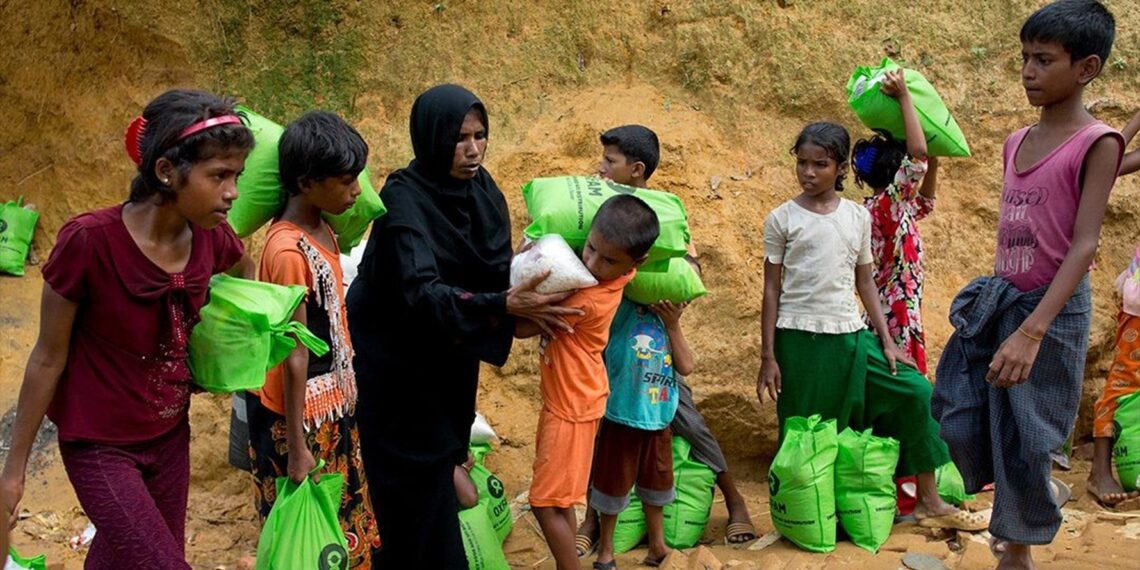Even as Bangladesh’s Mohammd Yunus-led interim authority appears to be caught in a bind over the so-called “humanitarian corridor” for the supposed repatriation of Rohingya refugees from camps in Cox’s Bazar, as many as 365 fresh Rohingya crossed into Bangladesh over the last three days.
Sources in Bangladeshi aid agencies and officials working among the 1.4 million Rohingya already living in 33 camps spread over Kutupalong and Nayapara said all of the fresh arrivals suffered from malnutrition and carried signs of physical abuse, suggesting continuing violence by Arakan Army insurgents in Buthidaung and Maungdaw.
“Reports from Cox’s Bazar indicate that ethnic cleansing of the Rohingya continues in full swing in the Rakhine State. A few days ago, there were reports of the influx of about 135,000 Rohingya over the past few months. This effectively nails the Yunus-led interim authority’s aim to establish a humanitarian corridor, whatever that means, for the Rohingya repatriation,” a former Bangladesh diplomat who has done extensive work on the issue told Northeast News over phone.
Attesting to reports of “ethnic cleansing” by the Arakan Army, this official said that the “humanitarian corridor” will “not serve any practical purpose as it will only ensure the movement of Rohingya from one camp (in Bangladesh) to another (in the Rakhine State), were this to happen at all. Khalilur Rahman will have to brazen it out if he still wants to pursue the corridor issue”.
While the Yunus-led interim authority finds itself in a predicament of its own creation, US Embassy Charge d’Affaires Tracey Ann Jacobson and three other diplomats reached Chittagong to offer their respects for a fallen US Army officer who died during the Second World War.
Bangladeshi officials familiar with the “secretive” approach of the senior interim authority functionaries said that the 271-km-long border with Myanmar was in “full control” of the Arakan Army which “will not take back the 1.4 million Rohingya languishing in camps in Cox’s Bazar”.
This, the officials said, signaled a “collapse” of the putative “humanitarian corridor” narrative espoused by the Yunus regime. Questioning the “purpose” of such a corridor, the officials said that “even if the objective is to push supplies into Rakhine State, this could be done along the coastline as well as the Naf river which are in complete control of the Arakan Army.
Suggesting that the United Land Port at Teknaf could have been a better location to facilitate the shipment of supplies into the Rakhine State, one Bangladeshi bureaucrat said that “this would have been ideal as Maungdaw is on the opposite bank of the Naf river”.
The Arakan Army operates patrol boats along the coast, Bangladesh officials said.
“We can continue to keep our eyes shut” even after the Myanmar military junta recently firmly turned down a Bangladeshi proposal on the Rohingya repatriation,” a Bangladeshi official said, adding “who do you provide humanitarian aid to when the Rohingya are still being driven out of Buthidaung and Maungdaw?”
Pointing out that “this government (Yunus regime) has bitten off more than it can chew”, another former Bangladeshi diplomat said that officials “do not seem to have paid due attention to detail.
ALSO READ: Thousands mark 80th anniversary of V-E Day outside Buckingham Palace
Their position has changed often enough, which indicates that the ‘humanitarian corridor’ was just a cover for dispatching supplies to the Arakan Army”.
While the ‘humanitarian corridor’ issue initially pushed the Bangladesh Nationalist Party (BNP) to say that no consultations were held with the political parties any decision on the matter should come from elected members of parliament.
However, political analysts said the BNP “will eventually fall in line” on an issue with international linkages and ramifications.















